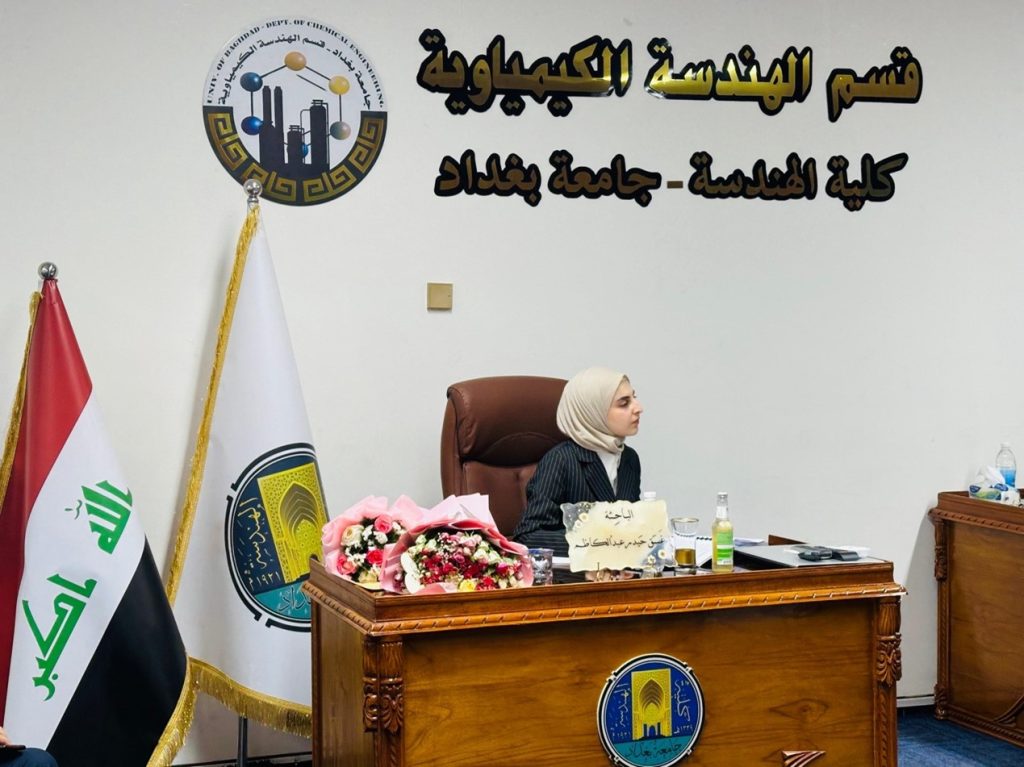The College of Engineering at the University of Baghdad witnessed the public defense of the master’s thesis by Ghasaq Haider Abdul-Kadhim in the Department of Chemical Engineering. Her thesis, titled “Mass Transfer Characteristics of Metabolic Gases in a Airlift Bioreactor under a Microbial Bio-consumption Environment” was presented on Tuesday, June 24, 2025, in the Prof. Dr. Mahmoud Omar Hall within the Department of Chemical Engineering, under the supervision of Prof. Dr. Mahmoud Khazzal Hummadi.
This study focused on the hypothesis that tracking the behavior of dissolved biogases in aerobic lift bioreactors operating under biologically active conditions can provide valuable insights for re-evaluating reactor design strategies. This hypothesis stems from the observation that the rate of gas consumption by microorganisms is not necessarily proportional to the rate of dissolution of these gases in the liquid phase, given the multiple stages they pass through before reaching the cell interior, where various metabolic reactions occur. Accordingly, the main objective of this work is to study gas transport patterns in two different biological systems bacterial aerobic respiration and microalgal photosynthesis using a rectangular airlift bioreactor. The goal is to generate reliable data that supports the optimization of reactor design and operation under realistic biological conditions.
This study demonstrated the feasibility of dissolving biogases in airlift bioreactors by optimizing parameters such as flow rate and volume, thereby improving mass transfer from the gas bubble to the organism’s cell. This resulted in a 50% reduction in the gas consumed by bacteria. Dry biomass was also produced in the aerobic airlift bioreactor in an amount of 30 grams, or 5 grams per liter.
The research resulted in a set of recommendations to study the same conditions but using a circular aerobic bioreactor, pumping gas at different time intervals, and replacing aerobic bacteria with anaerobic, thermophilic, or thermotolerant bacteria.
After the scientific discussion by the members of the discussion committee, listening to the researcher’s defense and evaluating the thesis, the researcher was awarded a Master’s degree in Chemical Engineering








